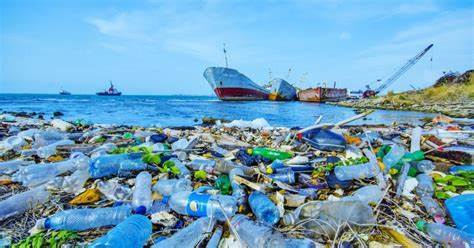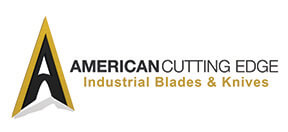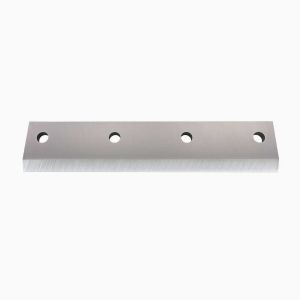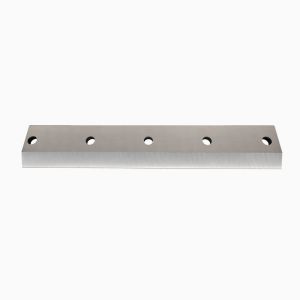Closing the Loop on Plastic Waste

One of the goals of the plastics industry is to close the loop of plastic production to increase the use of existing materials and significantly reduce waste. You can't turn around without seeing plastics. They're absolutely everywhere. As far as materials go, plastic is cheap and can be used in seemingly endless applications. It's estimated that a single plastic bag only has a 15-minute lifespan. Brief use of plastic products has become a hallmark of what many consider to be a modern disposable lifestyle in which many plastic products are only used once.
Six Sobering Statistics:

- Globally, over 1-million plastic bottles are used every minute
- 5-trillion single-use plastic bags are used annually
- 300-million tons of plastic waste is produced every year
- Only 9% of plastic ever produced has been recycled
- 3.13-trillion tons of PET plastics were discarded in 2018 in the U.S. alone
- The volume of plastic the world throws away every year could rebuild the Great Wall of China (approximately 3,700 miles long)
What's the Value of Recycling?
The worth of plastics recycling can be found well beyond the monetary value of the waste left behind. We have to look at the global benefits of keeping plastics out of the landfills and helping to save the environment from chemical contamination as plastics break down, aiding in beautification with less litter, and saving ocean wildlife. Let's be honest, society isn't getting any less busy, our desire and need for convenient, single-use items and packaging aren't going anywhere. Recycling plastics allows society the convenience all while enabling consumers to continue using plastic.
Closing the Loop on Plastics
We've talked before about the Plastics Loop and the role it plays in the creation of a circular economy in an effort to reduce the production of new plastic through the use of existing recycled products. The Plastics Loop represents the unique opportunity to save billions of dollars and break away from producing new plastics that consume fossil fuels.

- Virgin polymer pellets are produced by petrochemical companies like DuPont, BASF, and SABIC.
- Pellets are sent to compounders who melt the pellets down and add colors, glass strands, and other enhancements.
- The product is then re-pelletized and sent to manufacturers of sheet, film, and other plastic products
- Items are then produced.
- From the production process there are two potential paths – either the item manufactured is used until its life ends OR there's scrap/trim that is recycled and granulated, shredded, and pelletized for a new use.
As products reach end-of-life, the plastic material is recycled to create all kinds of plastic products. In a perfect world, this plastic doesn't head to a landfill but is continually re-birthed into new products.
Industrial Machine Knives and the Plastics Loop
The Plastics Loop requires industrial dies, knives, and blades at every single stage from the creation of virgin material, compounding of pellets and converting of pellets into sheet and/or film or other plastic products to the granulating, shredding, and pelletizing at the end of a product's life. (Or scrap from the manufacturing process). American Cutting Edge engineers a cutting solution for each and every stage of the Plastics Loop.
Whether it's underwater pelletizers with ACE brand knives, slitters in the converting process, trim knives, or size reduction through granulating and shredding, American Cutting Edge provides cutting solutions engineered to improve productivity and reduce operational downtime.
Why ACE?
With over 60 years in the industrial knife manufacturing business, ACE understands every stage of the Plastics Loop. This provides us with unique insight and knowledge that few suppliers can offer. With advanced metallurgy and engineering experience, we know exactly how blades respond to plastic materials of all types. Not only that, ACE also has a firm understanding of how the changes that occur to this material throughout the Plastics Loop drive corresponding changes to blade materials. That's insight customers just can't gain anywhere else.
100% Reclamation of Plastics is Possible
Keeping our oceans and environment clean is our responsibility. Helping recyclers and plastic product manufacturers improve efficiency through the employment of optimized blades is one of the ways we contribute to the Plastics Loop. With more efficient and profitable recycling operations, it's reasonable to assume that more recycling will happen.
ACE provides coaching and process analysis via our in-house engineering department to customers that focuses on boosting production while reducing the costs associated with maintenance and downtime. We perform failure analysis to understand why blade breakdowns occur and offer best-fit recommendations for improvement. This holistic approach to assessing your cutting application and evaluating both dies and rotors to expose performance and optimization opportunities enables you to make the necessary adjustments to run a more efficient and safer operation.
ACE customers benefit from this complete evaluation in multiple ways including decreased premature wear, a reduction in uneven die wear, and cost savings while improving production, safety, and machine performance. The depth of our experience often results in blade selections that provide higher wear resistance, longer life, and better performance than OEM blades.
Contact our industrial knife experts today to learn how blade optimization can improve your plastics recycling operation and keep your organization in the Plastics Loop!




